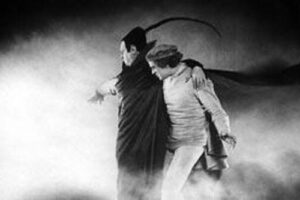As believers in Christ, we have an obligation to be prepared to defend our faith (1 Peter 3:15; Jude 3), and one of the most remarkable tools we have is simply looking at the before and after behavior of the apostles upon the death, burial, and resurrection of our Lord.
The Apostles Were Discouraged
We must first recognize that a Messiah who failed to deliver and to reign, one who was defeated, humiliated, and slain by his enemies was a contradiction in terms. Nowhere do ancient Jewish texts speak of this sort of “Messiah.” So it’s difficult to exaggerate, therefore, what a catastrophe Jesus’ crucifixion would have been for the remaining eleven disciples. It wasn’t just that their beloved Teacher was gone; rather, Jesus’ death on the cross meant the crushing defeat of any hopes they had entertained that he was the Messiah.
When Jesus was crucified, His followers were discouraged and depressed. Remember, Peter had denied Him three times, so imagine his own individual state, knowing his last act was to deny the very Son of God he had earlier professed. They all dispersed out of fear. The Jesus movement was all but stopped in its tracks.
The Change in Demeanor
Then, after a short period of time, we see them abandoning their occupations, regathering, and committing themselves to spreading a very specific message – that Jesus Christ was the Messiah, the very Son of God who died on a cross, was resurrected, and was seen alive by them.
Why? What would cause this change in demeanor if not for the truth?
Yes, people will die for their religious convictions if they sincerely believe they are true. We see this on the news every day and this type of action has been going on throughout world history. While they may strongly believe in the tenets of their religion, however, they don’t know for a fact whether their faith is based on the truth. They simply cannot know for sure. They can only believe.
In stark contrast, the apostles were in a unique position to know for a fact whether Jesus had returned from the dead. They saw Him, they touched Him, and they ate with Him. They knew He wasn’t a hallucination or a legend. And knowing this truth, they were willing to die for Him.
The change in demeanor by the apostles cannot be plausibly explained by saying that they were liars and hoaxers; the fact that the early apostles were willing to spend the rest of their lives proclaiming this, without any payoff from a human point of view stands in the face of any conspiracy theory. They faced a life of hardship. They often went without food, slept exposed to the elements, and were ridiculed, beaten, imprisoned. And finally, most of them were executed in torturous ways. For what? For good intentions? No, because they were convinced beyond a shadow of doubt that they had seen Jesus Christ alive from the dead.
Had they known it was a lie, they would have never been willing to sacrifice their lives for it. Nobody willingly dies for something they know is false.
It’s a reminder for all of us to stand firm in our faith and be prepared to fight the good fight (1 Timothy 6:12).






